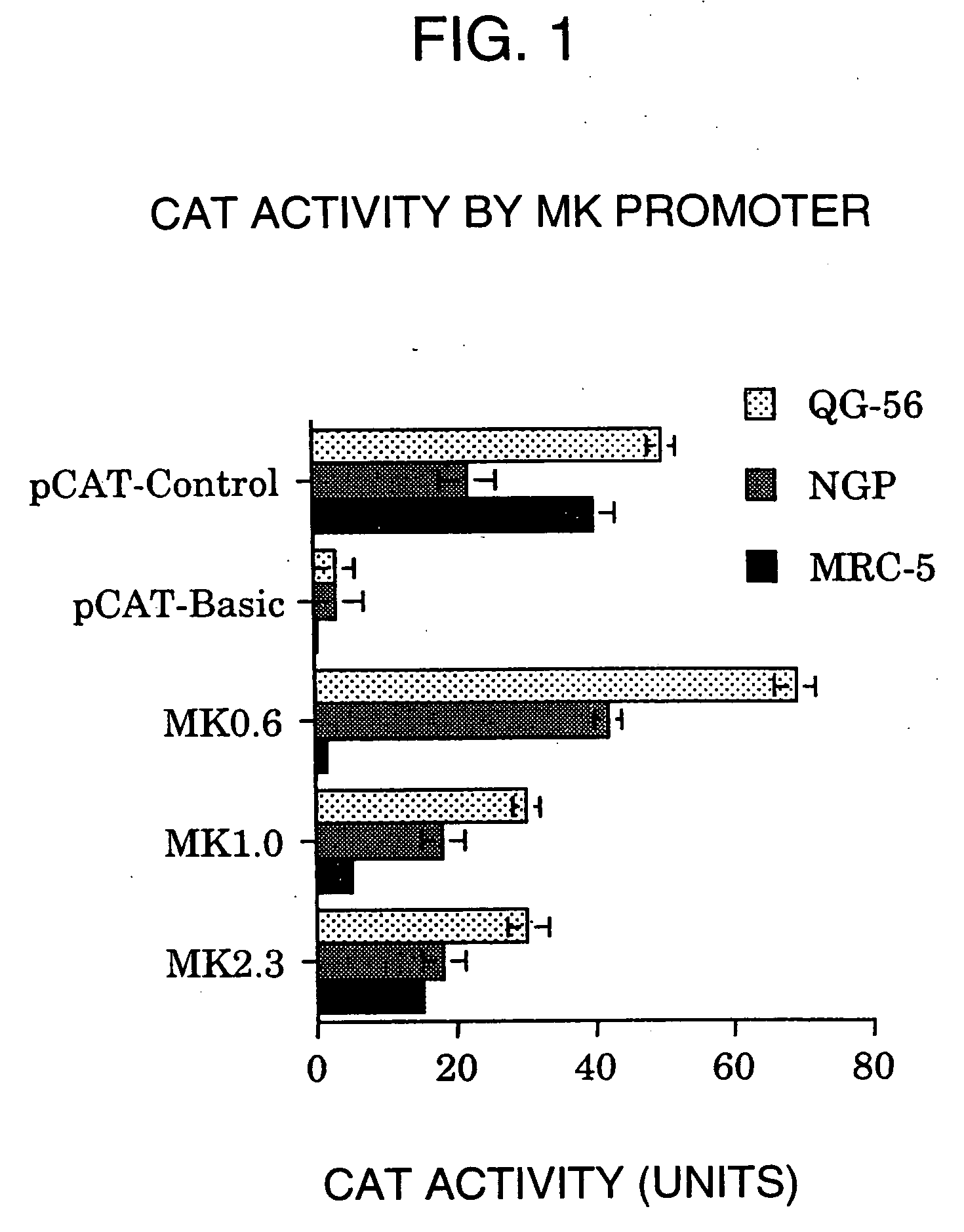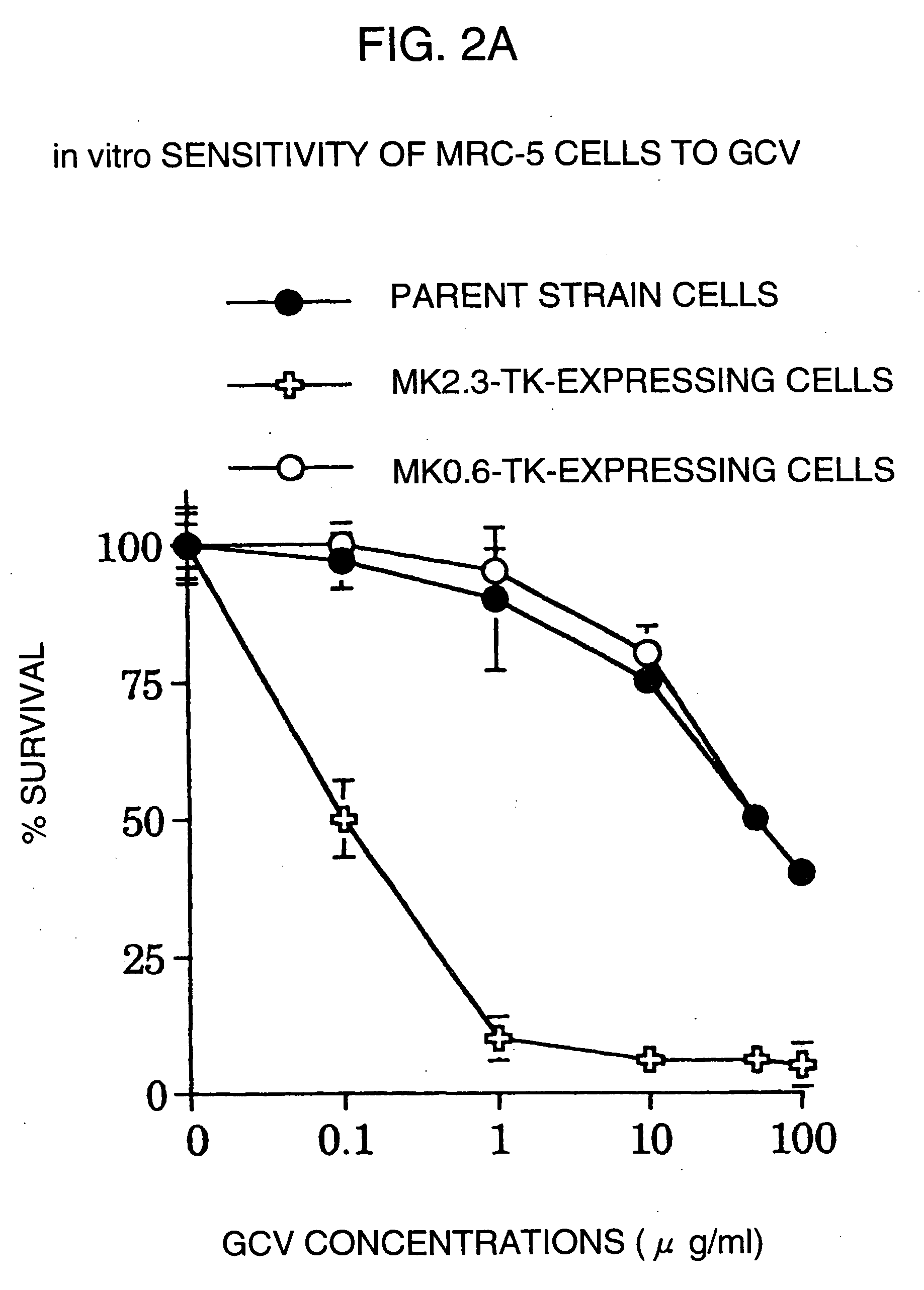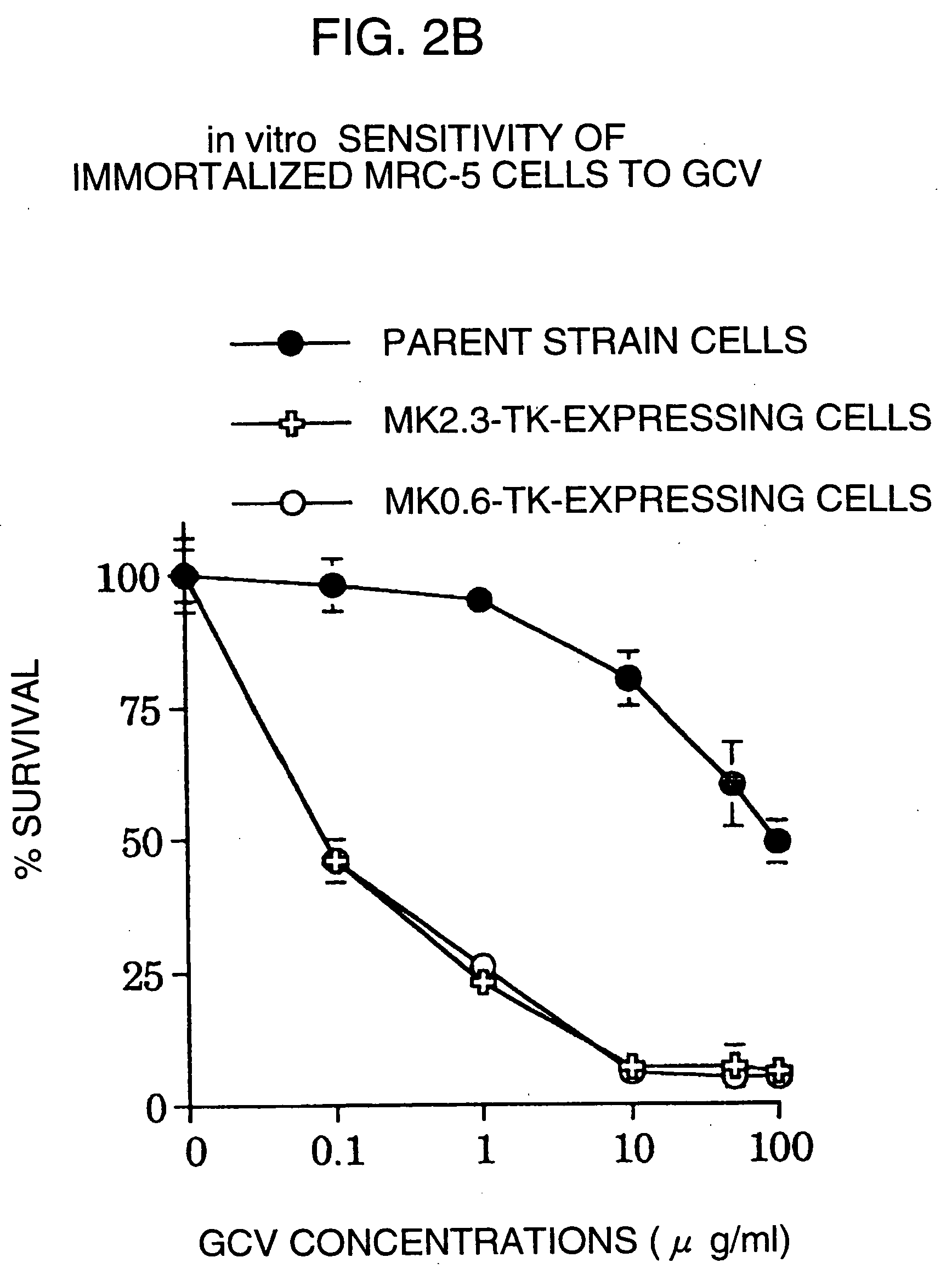Tumor-specific promoter
a tumor-specific, promoter technology, applied in the direction of phosphorous compound active ingredients, drug compositions, biocides, etc., can solve the problems of limited application range of gene therapy using these promoters, low activity, and lack of flexibility of promoters, so as to achieve high tumor-specificity and promoter activity, and effective use of gene therapy
- Summary
- Abstract
- Description
- Claims
- Application Information
AI Technical Summary
Benefits of technology
Problems solved by technology
Method used
Image
Examples
example 1
The Isolation of Tumor-Specific Promoters from the Midkine Gene
[0049] A vector system for the analysis of the midkine transcription control region was obtained in the following manner.
[0050] A plasmid phgMK2.3K / CAT (Pedraza, C R et al., J. Biochem., 117:845-859, 1995) was cleaved with XhoI and NcoI or with XhoI and Eco47 III to obtain a 4.0 kb DNA fragment containing 1.0 kb of the midkine genomic gene and a 3.4 kb DNA fragment containing 0.6 kb of the midkine genomic gene, respectively. Using DNA ligase, these fragments were prepared as circular DNA. As a result, plasmids were obtained that contained respective 2.3 kb (MK2.3) of the human midkine genomic gene having the base sequence set forth in SEQ ID NO: 3, 1.0 kb (MK1.0) of the same gene having the base sequence set forth in SEQ ID NO: 2, and 0.6 kb (MK0.6) of the same gene having the base sequence set forth in SEQ ID NO: 1, and, downstream thereof, the CAT (chloramphenicol acetyltransferase) gene has been ligated.
example 2
Examination on Transcription Activity by Tumor-Specific Promoters Derived from the Midkine Gene
[0051] Using the above plasmid, or a plasmid pCAT-Control (manufactured by Promega) having the promoter of SV40 virus, and a plasmid pCAT-Basic (manufactured by Promega) containing no promoters, gene introduction was performed on the lung cancer cells QG-56, the neuroblastoma NGP, and the normal human fibroblasts MRC-5 that were being cultured in a DMEM (Sigma) supplemented with 10% bovine fetal serum. After 10 μg each of these plasmids and lipofectin (Life Technologies) were mixed, it was allowed to stand at room temperature for 30 minutes to form a complex. Then the complex, after removing the bovine fetal serum therefrom, was contacted with the cells. Eight hours later culture medium supplemented with bovine fetal serum was added, cultured for 40 hours, and then the gene-introduced cells were disrupted by ultrasonication. After centrifugation, the supernatants were used to examine the...
example 3
Tumor-Specific Cytotoxic Effects Using Tumor-Specific Promoters Derived from the Midkine Gene
[0056] (1) In order to examine cytotoxic effects by the transcription activity of the promoter obtained from the midkine gene, herpes simplex virus thymidine kinase (HSV-TK), a suicide gene, was ligated downstream of MK0.6 and MK2.3, and the plasmid was introduced in cells, and a prodrug gancyclovir (GCV) was added into the culture medium of the gene-introduced cells. The method of determining the cytotoxic effect by this system is as described in Moolten, F L. Cancer Gene Ther., 1:279-287, 1994.
[0057] First, the CMV promoter of pcDNA3 (manufactured by Invitrogen) was removed using NruI and HindIII sites, to which MK2.3 or Mk0.6 was inserted, and then using the EcoRV site, the HSV-TK gene excised from pMK (Brinster, R L et al., Cell, 27:223-231, 1981) with BglI and EcoRI was inserted. Each of the plasmids thus obtained (MK2.3-TK and MK0.6-TK) was introduced, as described above, using lipo...
PUM
 Login to View More
Login to View More Abstract
Description
Claims
Application Information
 Login to View More
Login to View More - R&D
- Intellectual Property
- Life Sciences
- Materials
- Tech Scout
- Unparalleled Data Quality
- Higher Quality Content
- 60% Fewer Hallucinations
Browse by: Latest US Patents, China's latest patents, Technical Efficacy Thesaurus, Application Domain, Technology Topic, Popular Technical Reports.
© 2025 PatSnap. All rights reserved.Legal|Privacy policy|Modern Slavery Act Transparency Statement|Sitemap|About US| Contact US: help@patsnap.com



